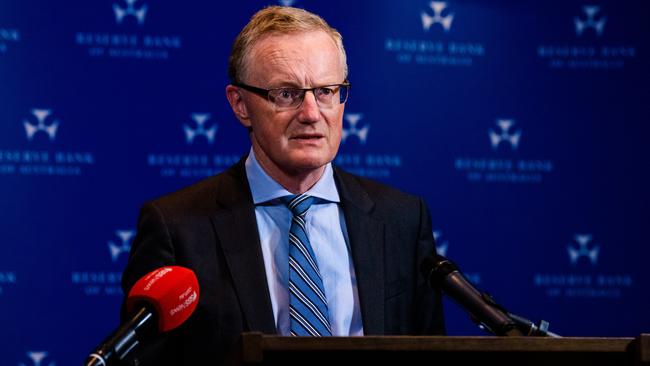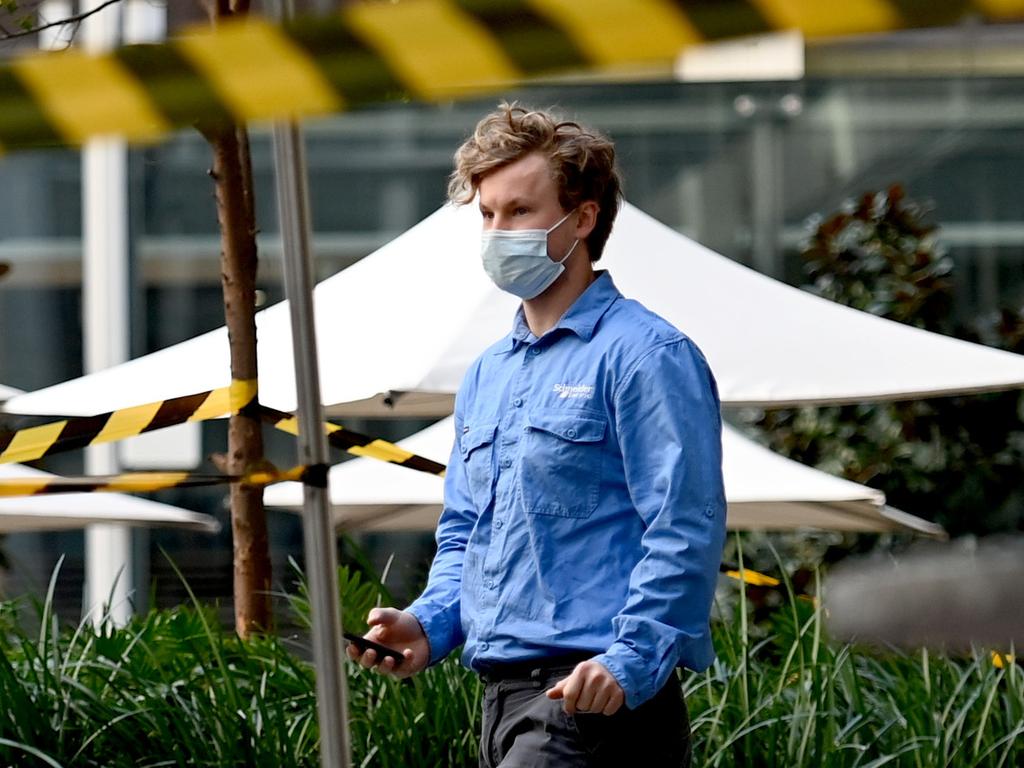RBA to take stock over extended Covid-19 lockdown
The Reserve Bank is widely expected to defer a plan to wind back its bond purchases this month but could justify going ahead with a tapering.

The Reserve Bank is widely expected to defer a plan to wind back its bond purchases this month but could justify going ahead with a tapering, even as some leading economists say the central bank should inject more cash into the economy in response to worse-than-expected Covid-19 lockdowns.
While June quarter economic growth was strongly positive – thwarting a double-dip recession – economists predict the September quarter will be one of the worst on record.
In August, the RBA expected the economy to contract by “1 per cent at least” in the September quarter, but some leading economists now predict a contraction of at least 4 per cent.
RBA forecasts last month assumed a faster vaccine rollout would reduce the frequency and severity of lockdowns and allow the international border to be reopened gradually from mid-2022.
They assumed the Greater Sydney lockdown would extend through the September quarter, with brief and or less severe restrictions assumed to occur in parts of Australia in the December quarter.
But the RBA, which holds its monthly board meeting on Tuesday, faces a much bigger-than-expected September quarter contraction that will mean its 2021 growth forecast will need to be “slashed”, according to Westpac chief economist Bill Evans.
RBA governor Philip Lowe has noted that it is the level of central bank bond holdings as a proportion of the bond market that matters for policy, so the impact also depends on the level of bond issuance.
And the need for additional policy support in response to the outbreaks is “short term”, so with strong growth expected to resume next year, fiscal policy is the “more appropriate instrument”.
But in July, the RBA said it needed “flexibility to increase or reduce weekly bond purchases in the future, as warranted by the state of the economy at the time”.
It planned to “keep the rate of bond purchases under review in light of the evolving health situation and is prepared to act if worsening health outcomes affect the economic outlook”. Mr Evans argued: “I think there is no doubt of ‘worsening health outcomes’ so it would be quite extraordinary if the board did not decide to delay the taper.”
If the RBA’s view remained that QE was only effective in the medium term, the central bank would be “underrating the only flexible instrument” it has left.
While a delay in the taper is not expected to generate much market response, a decision to actually lift weekly purchases from $5bn to $6bn would affect markets, narrowing bond spreads, hitting the dollar and possibly even boosting the sharemarket.
“It would not be the size of the increase but the signal that the RBA was prepared to do more than just reverse the August decision and respond to the deteriorating outlook,” Mr Evans said.
While some may argue that the current situation was merely a temporary contraction that would soon be unwound, and Westpac did see a 7.4 per cent growth rebound next year, this crisis was “unprecedented”.
And while base cases point to a strong recovery, there were “formidable risks, firstly around the shape of the near-term recovery and secondly with ongoing and unique health uncertainties”.
“The view of others is that the board could not save face if it flipped from confirming a taper to boosting purchases, but the health situation has deteriorated alarmingly and the uncertainties with the virus cast meaningful doubt around the outlook for 2022,” Mr Evans said.
ANZ’s head of Australian economics, David Plank, said an alternative may be to taper now but delay the next review until February, but a simple delay was “much easier to communicate”.
While the hit to the economy from the current lockdowns would be much bigger than expected in August – both because more parts of Australia were or had been in lockdown and because the path out of lockdown looked set to be slow – Mr Plank said the RBA should still expect a strong rebound next year.
Strong June quarter growth showed underlying demand in the economy was strong leading into the lockdowns, while indicators such as ANZ-Roy Morgan Australian Consumer Confidence and ANZ Job Ads have shown more resilience to lockdowns than last year, as has NAB Business Conditions.
“Using the reasoning the RBA applied in August suggests the same conclusion should be reached,” Mr Plank said.
“The fact that the Fed is now actively discussing its own tapering and some other central banks are tightening policy means there is likely to be little meaningful upward pressure on Australian bond yields and the dollar if the RBA goes ahead with its planned taper.”
But the “downside risks to the 2022 outlook” had increased, not only for domestic reasons, given a slower China and the global uncertainty posed by Delta, acknowledged last month by the Federal Reserve.
“At the very least Australia’s starting point for 2022 will be weaker, implying that wages growth and inflation are lower than previously expected,” Mr Plank said.
In his view, the prospect of a weaker starting point and greater risks around the 2022 outlook support a policy response by the RBA, even if the outlook for a strong rebound next year is intact.








To join the conversation, please log in. Don't have an account? Register
Join the conversation, you are commenting as Logout